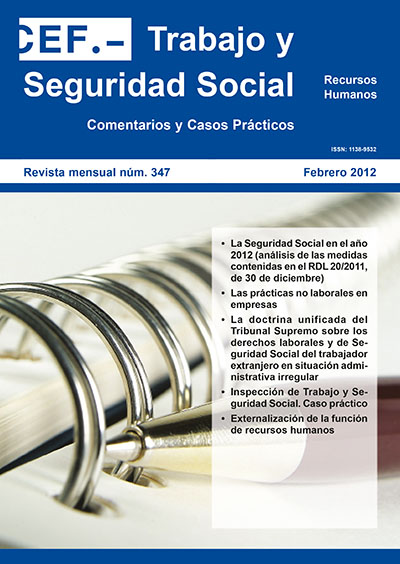The Supreme Court's unified doctrine on labor rights and Social Security of foreign workers in an irregular situation
DOI:
https://doi.org/10.51302/rtss.2012.3295Keywords:
foreign workers, work permits, labor rights and Social Security rightsAbstract
Immigration regulations require that non-EU foreign workers seeking employment in Spain provide both work and residence permits. However, the reality is that many foreigners provide work services on their own accord (which meets the requirements of article 1.1 ET) without the required authorization. The law and the courts seek to address this situation, although not always in the clearest manner. This brief study has two goals. On one hand, it aims to summarize the legal statements the Supreme Court has been pouring over, contemplating the controversial question of the potential effects that the lack of official work authorization for non-EU foreign workers may have on employment contracts and Social Security. In addition, it seeks to highlight the relationships between the judiciary and the legislature that exist in regard to this issue. In effect, the legislature has left the list of labor and Social Security rights open, which foreign workers would be entitled to in exceptional situations, and the case law has inspired some of the reforms of LOEx in relation to this topic.
In spite of this, and that in the last 10 years the Supreme Court has been shaping and refining the interpretation of article 36 LOEx with increasingly more informed statements, the issue still raises many questions that should be resolved by the legislator as clearly as possible, avoiding controversial legal constructs.



















